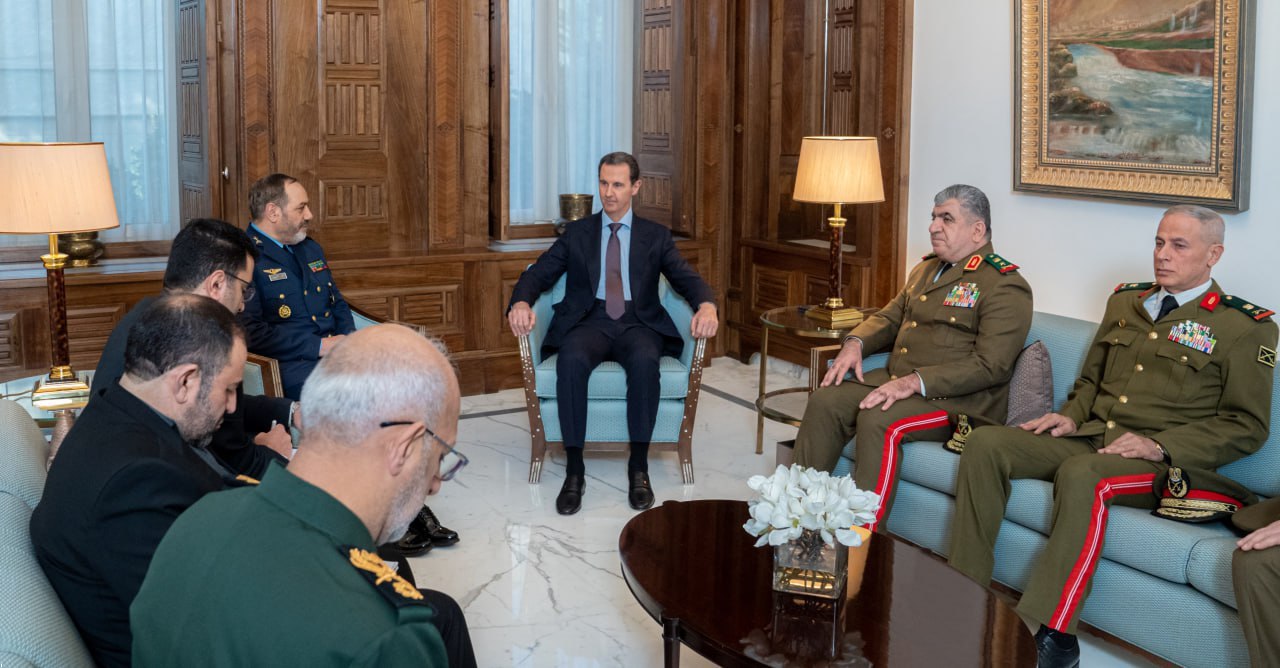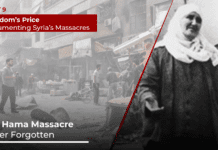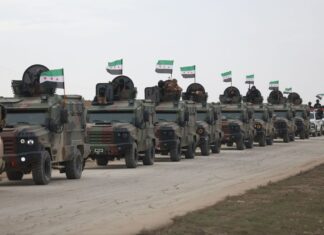
Iranian Defense Minister Aziz Nasirzadeh arrived in Damascus on Saturday evening, emphasizing Tehran’s “strategic partnership” with Assad and reaffirming its commitment to “strengthening bilateral defense and security ties.” The visit comes during a period of heightened Israeli airstrikes targeting Iranian and militia-linked sites in Syria, raising questions about Iran’s role and influence in the war-torn country.
Nasirzadeh, invited by Assad’s defense minister, described Assad’s regime as having a “very prominent and strategic role in the foreign policy of the Islamic Republic of Iran.” Speaking to reporters upon his arrival, he underscored the importance of the visit. “During this visit, we will have meetings with political and military officials to discuss various aspects, especially in the field of defense and security to strengthen and consolidate them,” he said.
The visit highlights the deepening alliance between Tehran and Damascus, even as the regime appears increasingly cautious about overtly aligning with Iran amid unprecedented Israeli military actions. Iranian sites in Syria, particularly around Damascus, have come under intensified Israeli bombardment since the escalation in Gaza and Lebanon.
Nasirzadeh’s visit follows closely on the heels of a trip by Ali Larijani, senior advisor to Iranian Supreme Leader Ayatollah Ali Khamenei, who met with Assad to discuss regional developments. Larijani reiterated Iran’s readiness to support Assad, emphasizing what he called the regime’s “pivotal role” in the region.
During their discussions, Assad and Larijani addressed the Israeli escalation, which has included strikes on Damascus, Mezzeh, and Qudsaya, as well as Homs and other key areas with significant Iranian military presence. Assad condemned the attacks as “genocidal crimes” and pledged unwavering support for the Palestinian cause and Lebanese resistance.
Despite these affirmations of solidarity, Iran’s military and political footprint in Syria is facing significant strain. Recent reports suggest that the Iranian Revolutionary Guard Corps (IRGC) has scaled back its senior personnel in Syria in response to Israeli strikes, relying more on allied militias to maintain its influence.
This shift has sparked internal tensions within Iranian-backed militias, particularly in eastern Syria. In Deir Ezzor, escalating disputes over unpaid salaries and dwindling resources have led to sharp divisions among militia leaders. Syrian members of these groups report feeling marginalized, with monthly wages as low as $30 compared to the $700 paid to foreign recruits.
The declining support for local Syrian fighters, coupled with intensified Israeli operations, has strained Iran’s ability to project power effectively across its regional network. Some local militia members have threatened to abandon their positions, further highlighting cracks within the Iranian-led axis in Syria.
Israel’s campaign against Iranian-linked targets in the country has intensified since the war in Gaza erupted in October 2023. On the day of Larijani’s visit, Israeli airstrikes targeted multiple sites near Damascus, including the Mazzeh neighborhood, where a residential building was destroyed, leaving several civilians dead and wounded.
The Sayyida Zeinab area, a stronghold of Iranian-backed militias, and Al-Qusayr in Homs province have also been hit, underlining the extent of Israel’s military reach in Syria. Analysts suggest these strikes aim to undermine Iran’s regional influence and disrupt its supply routes to Hezbollah in Lebanon.
Tehran’s recent high-level visits to Syria and Lebanon signal its determination to maintain a strong presence in the region despite growing challenges. Iranian officials have dismissed reports of a diminished role in Syria, asserting that their “advisory presence” remains intact.
However, the visits by Nasirzadeh and Larijani also reflect the urgency of addressing vulnerabilities within the Iran-Assad alliance. As Israeli strikes escalate and internal tensions within Iranian-backed militias rise, Tehran is working to bolster its strategic partnerships and address the cracks in its regional influence.
The outcomes of these meetings, particularly regarding defense cooperation and responses to Israeli aggression, will likely shape the next phase of Iran-Assad relations and their broader regional strategy. For now, both Tehran and Damascus appear intent on presenting a unified front, even as their alliance faces mounting external and internal pressures.








